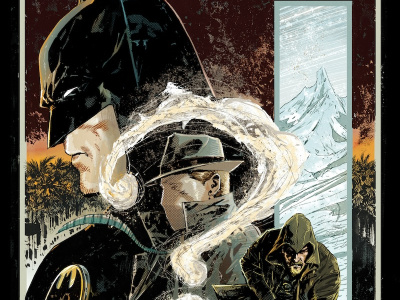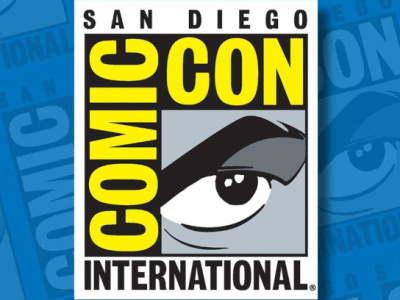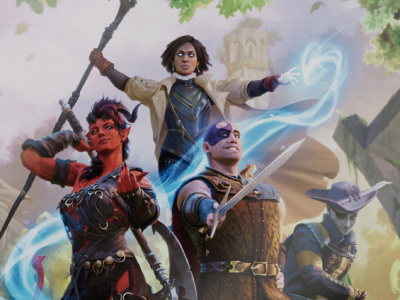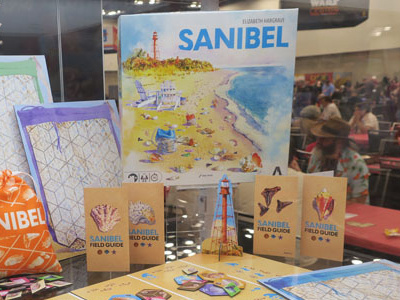2019 is a nice anniversary year for Marc Nathan. It’s 35 years since he opened Cards Comics & Collectibles in Reisterstown, MD, and it’s the 20th year for Nathan’s Baltimore Comic Con. The dreams started when Nathan was 19, and he saw an achievable goal.
"I’m one of the rare people who collects baseball cards and comic books, and in 1984... you could open a collectibles store," Nathan says. "Things like that were happening at the time. And you have to remember, living in a town with Mr. Geppi… this was definitely a thing you could do. It was all over the place. It looked like this could be a career."
Nathan had two "kid jobs" prior: working in a movie theater, and bussing and waiting tables at a local crabhouse. "The restaurant was packed every weekend," Nathan says. "There was a lot of loose cash. I bought 1983 World Series tickets with that loose cash."
He also found a storefront and started a business.
"I found a place in my small town on Main Street, and I miss the $300 a month rent," he says. "But for a kid of 19… you could do it. The risk didn’t seem that big. And I told myself if it didn’t work, I could always jump back into other things. A lotta loose cash waiting tables at the crabhouse."
It’s 35 years later, and Nathan hasn’t had to go back to waiting tables. In the interim, he’s learned a lot…
THE GOOD
Get Some PR Experience
Nathan doubled up on jobs, working in the public relations department of the Baltimore Orioles from 1986-90.
"It taught me how to manage up to 40,000 people a day, moving them around and making sure they had a good time," Nathan says. "I learned how to take care of people on a large scale."
That experience became particularly valuable when Nathan started the Baltimore Comic Con in 2000.
"I’ve long said what I learned there has carried into the Baltimore Comic Con in a huge way. Having that experience was a great teacher."
Stick to What You Know
Many successful storeowners open multiple locations. Not Nathan, even though he’s perpetually prompted by Jamie Graham of Graham Crackers and his 12 stores.
"Jamie is a close, personal friend of the last 25 years and he’s all about operating a dozen stores, and was always pushing me to expand," Nathan says. "But I never wanted to do that. I saw so many folks, particularly back in the 80s, gamble and open a second store, and they were usually the ones who went out of business fast. I don’t know if that scared me, but it certainly reinforced, ‘Eh… I don’t know that I even wanted to do that in the first place.’"
Nathan found his thing with the convention.
"I often remark to Jamie that my second store is open three days a year… and a whole lot of people come to it," he says.
Nathan doesn’t dismiss the value of opening more stores. But he stresses it needs to be an individual decision.
"I can’t say that opening more stores is wrong," he says. "It just isn’t ‘me,’ it isn’t what I wanted. I found my other thing. And that’s all I want to do."
Make Friends
In 35 years, you can build a reputation, and Nathan has built a good one. Nathan values his friends.
"Beth Widera, when she still owned the Orlando MegaCon, told me a story about how another convention (I don’t even recall which one) was going to do something that would compete with our con,” Nathan remembers. "And Beth said her line to that person was, ‘I don’t think you should do that. Marc’s got a lot of friends.’"
Nathan values relationships, and sees them always as a two-way street.
"When Beth spoke, I certainly always listened as well," he says. "But knowing that was her perspective on me and our con… that’s something that I’ve done well, I think. I’ve made a lot of friends throughout these things we do, and I’ve tried to keep them all."
THE BAD
Make The Upgrade Move… Now!
Nathan returned to the "kid job" at the movie theater… in a way. In November, 2017, Cards Comics Collectibles moved down the street into a much larger building that used to be a movie theater. The move has been good, and Nathan only wishes he would have done it sooner.
“Making a jump into a much larger location was key. Space isn’t what it used to be. They make toys and statues bigger and bigger every day. The space that we had in 1989 seemed big… but it quickly became small,” he says. “I had blinders on. I didn’t want to think about it. Now I’m so much happier, and it’s fun to go to work. I can do what I want to do, and show off what I want to show off.”
Part of what Nathan wants to do is cater to to mom, dad, and the kids.
“I’m upstairs sitting on the phone with you in what used to be the projection room, and we have cartoons running on a screen downstairs and there’s five… six kids sitting around watching this as their parents are shopping,” he says. “It’s become a great place that the entire family can walk into. That was not the case in my old building. I should have moved out of there long, long ago. I stayed small too long.”
Don’t Choke on Your Inventory
Nathan has a soft spot for, well… stuff.
“I just rarely say ‘no’ to a buy,” he says. “Any collection that walks in the door, there’s a decent chance I’ll buy it.”
That got to be too much, and Nathan now freely admits that “I have way too much inventory.
“I hired a guy a few years ago just to help me sell stuff, sell it all off,” he says. “After being around for about a month, and this guy is a seasoned veteran of the industry, he smiled at me and said, ‘You don’t have to buy another thing for the rest of your life. You can live off all this.’”
Nathan is trying, but the process is long.
“How I got to this point… I dunno, it’s probably my own fault,” he says. “But I’m getting better (see “What Else?” below).”
Make Sure You Know Your Costs
Nathan took a big gamble in 2002, and…it cost him as costs went crazy.
Marvel did a 9-cent Fantastic Four #60 promo issue, and Nathan had the idea to insert 200,000 copies into the Sunday Baltimore Sun newspaper to promote his convention.
“The Sun gave me an insertion quote that was do-able. So I figured the insertion cost plus four cents a book from Marvel, let’s do it,” Nathan says. “And word got out into the world before the deal was finalized.”
Therein lied a problem.
“I needed a message on the front cover that said, ‘Bring this to the con, get it signed!’ and to Marvel, that made it a custom comic, and I had to pay a quarter instead of four cents,” Nathan says. “But I was committed. Everyone was talking about it. Joe Quesada, at his Cup o’ Joe panel in Chicago was saying, ‘Hey, someone’s ordering 200,000 copies of a single comic, I think that’s a world record.’”
The problem snowballed when the Sun saw the comic.
“They said ‘This isn’t just an insert; there’s ads in it. That changes everything,’” Nathan remembers. “So they changed my insertion rate, about doubled it. The whole thing went from affordable to…hard to swallow.”
Nathan soldiered on, and y’know what? Maybe it’s not all that bad.
“I can’t say it brought in thousands and thousands of people,” he says. “But I might do it again, all things considered. It helped the show; it made news.”
AND WHAT ELSE?
“We couldn’t get tickets in Baltimore at all for the 1983 World Series. There were people waiting in line for days. So my friend said, ‘Let’s drive to Philadelphia.’ We walked up to a window, and…they couldn’t possibly have been selling World Series tickets ’cause there was no one there! So we walked up and asked, ‘Are you selling World Series tickets?’ and they said, ‘How many you want? What game?’ I never thought I’d heard that. Four tickets, $100. $25 apiece. Loose cash.”“I had a special back cover ad on that Fantastic Four #60 as well that basically said ‘If you can’t make it to the show, visit these stores. We listed about 70 comic stores from Baltimore to D.C. to northern Virginia, all the way up and down the coast. That generated a lot of goodwill. You need that for the show. If you don’t have the support of the local stores, you won’t go anywhere.”
“Trust me, it’s been in my head: Why have a Diamond account and take in new stuff every week? Couldn’t I just sell all this old stuff a box at a time? Just do comics for subscribers and live off my old inventory? But…that is 1975. That’s a store in the basement just selling back issues.”
“Since I’ve got to this location, another good thing I’ve done is make sure and process all the buys I’ve made at this location. I’ve processed them immediately, so they’re not going in the wrong direction, into the back room. No matter if it’s something we can use or something that’s going in a dollar box, it gets processed now. That’s a good thing. And casually, we’ve been going to the back room and digging out stuff as needed. This industry makes you want to go back and find out where your Deadly Class back issues went to.”
“For everything that people have said, Mr. Geppi has been infinitively supportive of this industry. And I’ve always viewed Paul Levitz as a personal hero as well.”



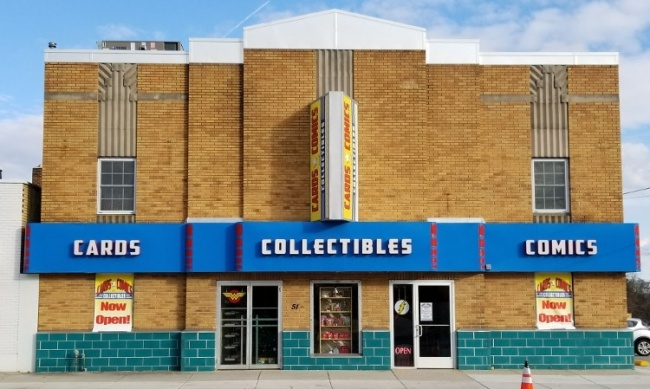
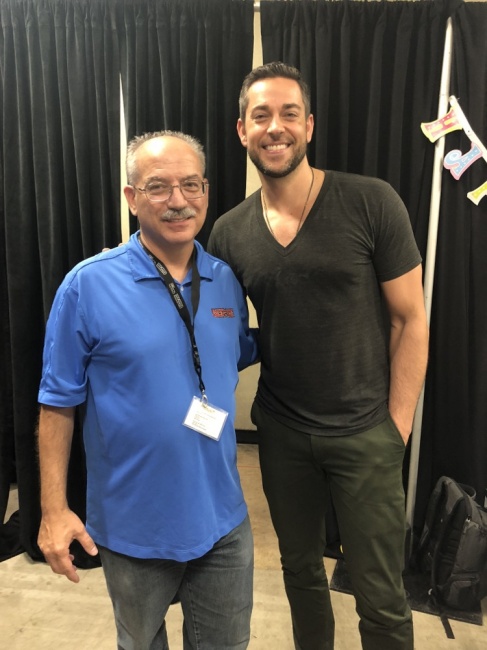
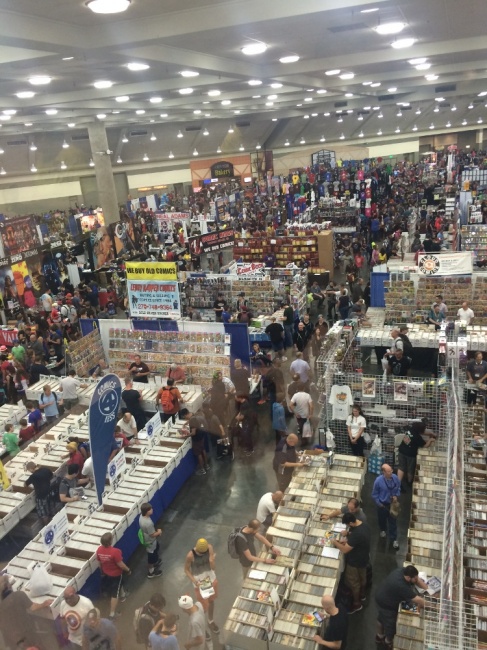
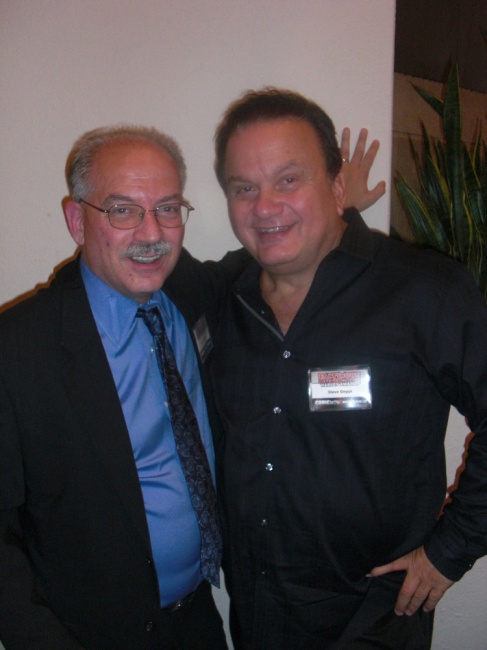
 View Gallery: 5 Images
View Gallery: 5 Images 